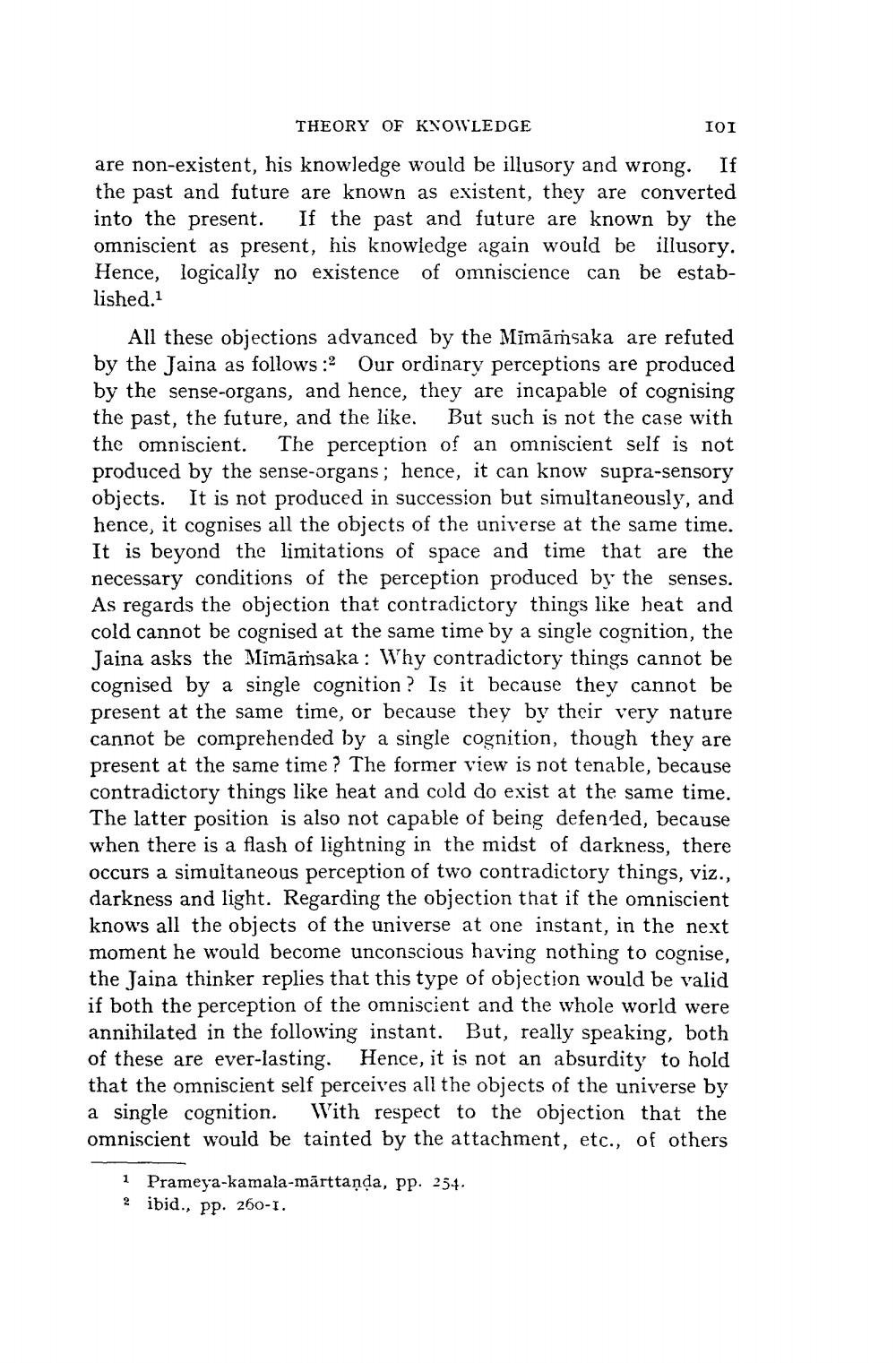________________
THEORY OF KNOWLEDGE
101
are non-existent, his knowledge would be illusory and wrong. If the past and future are known as existent, they are converted into the present. If the past and future are known by the omniscient as present, his knowledge again would be illusory. Hence, logically no existence of omniscience can be established.1
All these objections advanced by the Mimāṁsaka are refuted by the Jaina as follows: Our ordinary perceptions are produced by the sense-organs, and hence, they are incapable of cognising the past, the future, and the like. But such is not the case with the omniscient. The perception of an omniscient self is not produced by the sense-organs; hence, it can know supra-sensory objects. It is not produced in succession but simultaneously, and hence, it cognises all the objects of the universe at the same time. It is beyond the limitations of space and time that are the necessary conditions of the perception produced by the senses. As regards the objection that contradictory things like heat and cold cannot be cognised at the same time by a single cognition, the Jaina asks the Mimāmsaka : Why contradictory things cannot be cognised by a single cognition ? Is it because they cannot be present at the same time, or because they by their very nature cannot be comprehended by a single cognition, though they are present at the same time? The former view is not tenable, because contradictory things like heat and cold do exist at the same time. The latter position is also not capable of being defended, because when there is a flash of lightning in the midst of darkness, there occurs a simultaneous perception of two contradictory things, viz., darkness and light. Regarding the objection that if the omniscient knows all the objects of the universe at one instant, in the next moment he would become unconscious having nothing to cognise, the Jaina thinker replies that this type of objection would be valid if both the perception of the omniscient and the whole world were annihilated in the following instant. But, really speaking, both of these are ever-lasting. Hence, it is not an absurdity to hold that the omniscient self perceives all the objects of the universe by a single cognition. With respect to the objection that the omniscient would be tainted by the attachment, etc., of others
1 Prameya-kamala-mārttaņda, pp. 254. 2 ibid., pp. 260-1.




